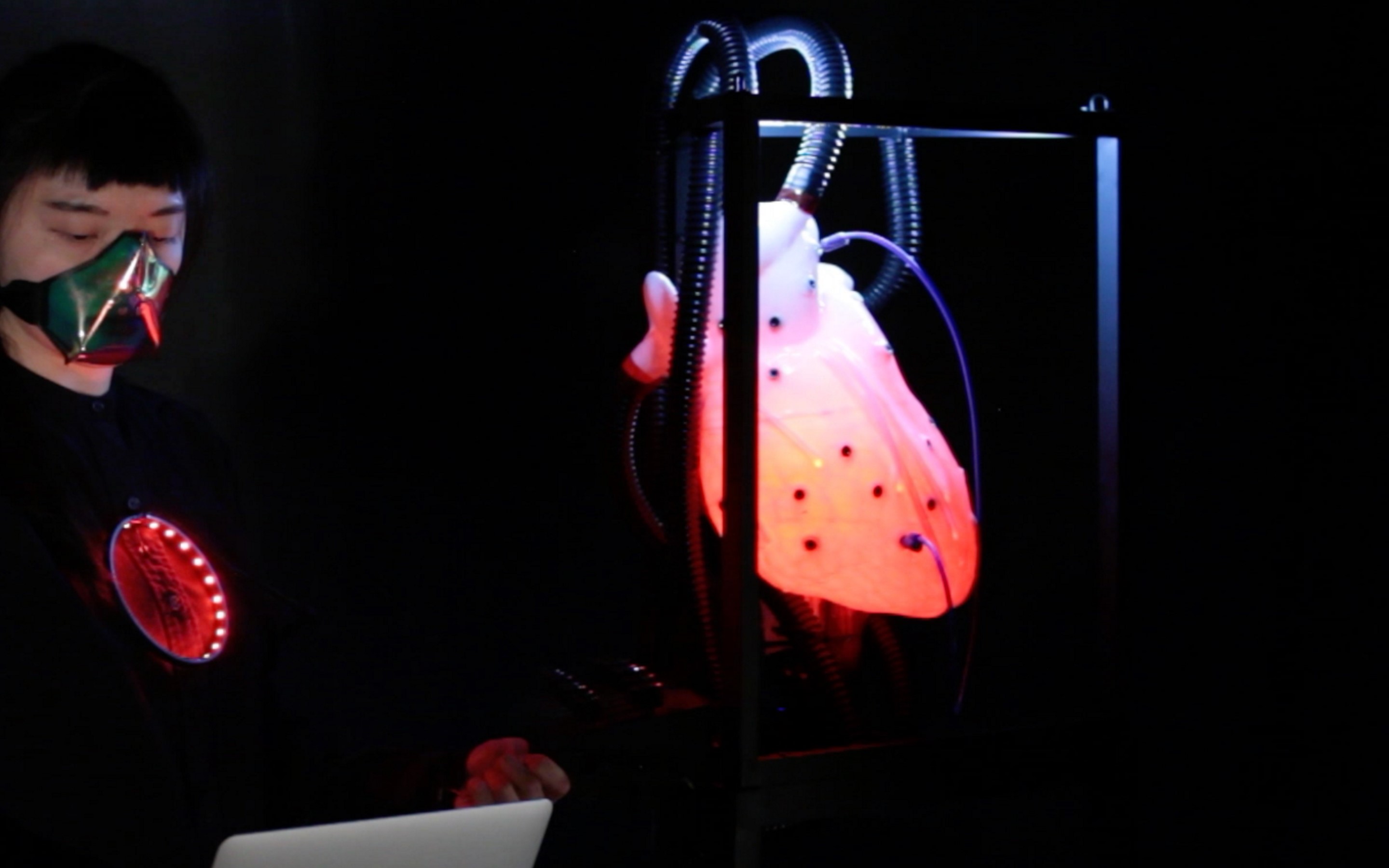A fruitful exchange between art and science
Conversation about responsible research and innovation
Conversation about responsible research and innovation

On June 5, the Fraunhofer-Gesellschaft will present Taiwanese artist Yen Tzu Chang in the scope of the “Science and Art in Dialog” event series in Berlin. She created a performance entitled “Whose Scalpel” during her artist residency at the Fraunhofer Institute for Medical Image Computing MEVIS. In a subsequent open discussion, Institute Director Horst K. Hahn and Ars Electronica Artistic Director Gerfried Stocker will explore complexity as a term and its possible ramifications for our society.
The performance addresses the future of the human-machine relationship in surgery. The installation is based on a 3D printed model of the artist’s heart equipped with lights and electronic sound generators. During the performance, Yen Tzu Chang, guided by artificial intelligence, will act as a ‘surgeon’ and place a bypass with the help of cables. For Fraunhofer MEVIS, the collaboration with an artist and pupils presents a new form of science communication. The aim is to strengthen participation of society in new technologies and to improve the public’s ability to judge both the opportunities and risks of current research. Through this artist residency, Fraunhofer MEVIS aimed to grant the artist access to new research and technology and to unlock new professional fields.
During the “STEAM Imaging” artist residency, artist Yen Tzu Chang worked at the institute and learned MeVisLab, an advanced software platform developed in Bremen commonly used for developing medical software systems. Collaboration with pupils formed an important part of the project. Alongside scientists, Chang organized workshops during her residency for the young researchers and developed her own artwork, the performance installation entitled “Whose Scalpel”.
At 6 pm on June 5, 2018, “Whose Scalpel” will be presented as part of “The Art of Complexity” event at the Fraunhofer-Forum in Berlin. The subsequent discussion will commence with keynote speeches by Hahn and Stocker. The two will approach the topic of complexity from different perspectives. They will discuss the influence of the increasing amount of information and image data on future medicine, the role of artificial intelligence in the process, and artists’ contribution to addressing the growing complexity of new technologies, thus catalyzing social discourse.
In 2003, the first art exhibits were displayed at Fraunhofer Headquarters in Munich. They addressed the connection between the worlds of science and art. In our society, these areas do not seem to have much in common. Science is associated with rationality and technology, and art is individual, addresses feelings, and is considered subjective. Theseries of events offers artists and scientists the opportunity to start a conversation, make new contacts, and explore commonalities. For applied research, mutual exchange is vitalizing: dialog with artists who address science and technology in their work has been very fruitful. Through the perspective of art, complex scientific topics can be identified in a new way.
A goal of the collaboration between research and development institutes such as Fraunhofer MEVIS and the Ars Electronica, a center for electronic media arts recognized worldwide, is to bring together artists and scientists through such artist residencies. These give artists an opportunity to visit the laboratories and facilities of leading research institutes for several weeks and to meet scientists, their work, and new technologies.
“These artist residencies have proven to be a valuable means of concrete exchange between art and science,” says Veronika Liebl, co-director of the Ars Electronica Festival. “They create space for intensive experimentation and can make complex scientific topics and their effects on technology understandable and visible. We have been collaborating with Fraunhofer MEVIS for years,” says Veronika Liebl. “This event gives us the opportunity to make further contacts and establish strong partnerships with other Fraunhofer Institutes in the future.”
The Ars Electronica has been organizing such residencies for years with, for example, the European Organization for Nuclear Research CERN in Geneva and the European Space Agency. These residencies address interdisciplinary and intellectual exchange and enable new artistic qualities and areas of operation in the research and innovation for artists. For example, the STARTS initiative of the European Commission aims at integrating art and creativity in the innovation processes of information and communication technologies. In 2017, a project with the artist Yen Tzu Chang and the Fraunhofer MEVIS in Bremen ensued in the scope of the European Digital Art and Science Network, which focuses on education and coming generations.